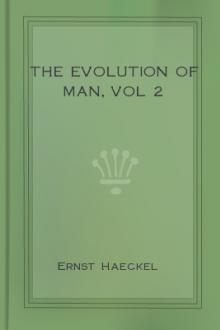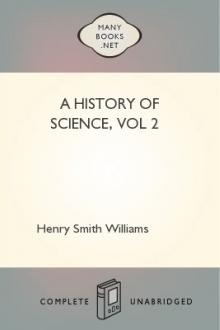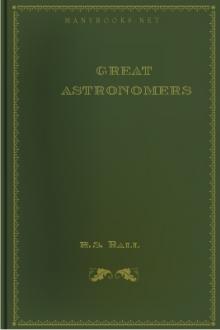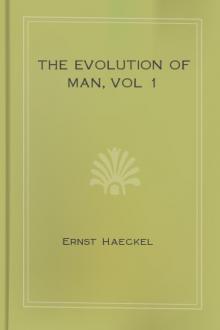Genre Science. Page - 2
No registration or authorisation! And it is all for free!

833- -Confirmation of Chladni's hypothesis of 1794--The aurora borealis--Franklin's suggestion that it is of electrical origin--Its close association with terrestrial magnetism--Evaporation, cloud-formation, and dew--Dalton's demonstration that water exists in the air as an independent gas--Hutton's theory of rain--Luke Howard's paper on clouds--Observations on dew, by Professor Wilson and Mr. Six--Dr. Wells's essay on dew--His observations on several appearances connected with dew--Isotherms

plete idea of the past development ofman's ancestors within the vertebrate stem by putting together andcomparing the embryological developments of the various groups ofvertebrates. And when we go below the lowest vertebrates and comparetheir embryology with that of their invertebrate relatives, we canfollow the genealogical tree of our animal ancestors much farther,down to the very lowest groups of animals.In entering the obscure paths of this phylogenetic labyrinth, clingingto the

was any sudden change in the level of mentality of the Roman world at the close of the classical period. We must assume, then, that the direction in which the great minds turned was for some reason changed. Newton is said to have alleged that he made his discoveries by "intending" his mind in a certain direction continuously. It is probable that the same explanation may be given of almost every great scientific discovery. Anaxagoras could not have thought out the theory of the moon's

Ptolemy succeeded in devising a scheme by which the apparent changes that take place in the heavens could, so far as he knew them, be explained by certain combinations of circular movement. This seemed to reconcile so completely the scheme of things celestial with the geometrical instincts which pointed to the circle as the type of perfect movement, that we can hardly wonder Ptolemy's theory met with the astonishing success that attended it. We shall, therefore, set forth with sufficient detail

oration and study of these antiquities is stated as follows: "Although possessing throughout certain general points of resemblance going to establish a kindred origin, these works nevertheless resolve themselves into three grand geographical divisions, which present in many respects striking contrasts, yet so gradually merge into each other that it is impossible to determine where one series terminates and another begins." On the upper lakes, and to a certain extent in Michigan, Iowa,

The skeleton is made up of many different parts, each of which is called a bone.3. The bones are covered by the flesh. 4. The bones of the head form the skull, which is hollow and contains the brain. 5. A row of bones arranged in the back, one above another, forms the backbone. The backbone has a canal running through it lengthwise, in which lies the spinal cord. 6. The trunk is hollow, and has two chambers, one called the cavity of the chest, and the other the cavity of the abdomen. 7. The

years ago, a distinguishedbiologist wrote in the Frankfurter Zeitung that it would secureimmortality for its author, the most notable critic of the idea ofimmortality. And the Daily Telegraph reviewer described the Englishversion as a "handsome edition of Haeckel's monumental work," and "anissue worthy of the subject and the author."The influence of such a work, one of the most constructive thatHaeckel has ever written, should extend to more than the few hundredreaders who

"Sixteen Experimental Investigations from the Harvard Psychological Laboratory" is a pioneering work by Hugo Münsterberg, a leading figure in the field of experimental psychology. The book offers a collection of sixteen studies that were conducted at the Harvard Psychological Laboratory, exploring a wide range of topics including perception, attention, memory, and language. Münsterberg's research was groundbreaking in its use of innovative techniques and technologies, such as the use

of the children a conviction of the truth of what they say; while, on theother hand, those who, in theory at least, occupy the position thatthe direct falsifying of one's word is never justifiable, act at adisadvantage in attempting this method. For although, in practice, they areoften inclined to make an exception to their principles in regard to truthin the case of what is said to young children, they can not, after all,tell children what they know to be not true with that bold and

s which are performed by Conjurations, are neither Natural nor Supernatural, but Diabolical, belonging unto Sorcery, and are prohibited all good Christians; so likewise all those Means which oppose Holy Writ, Gods Word and Commandments, are to be rejected and refuted by true Natural Cabalists; I say this, because a certain distinction and sure order ought to be found of the Natural, Supernatural, Unnatural things.In like manner there appertains unto Supernatural things, all the Water-Spirits,